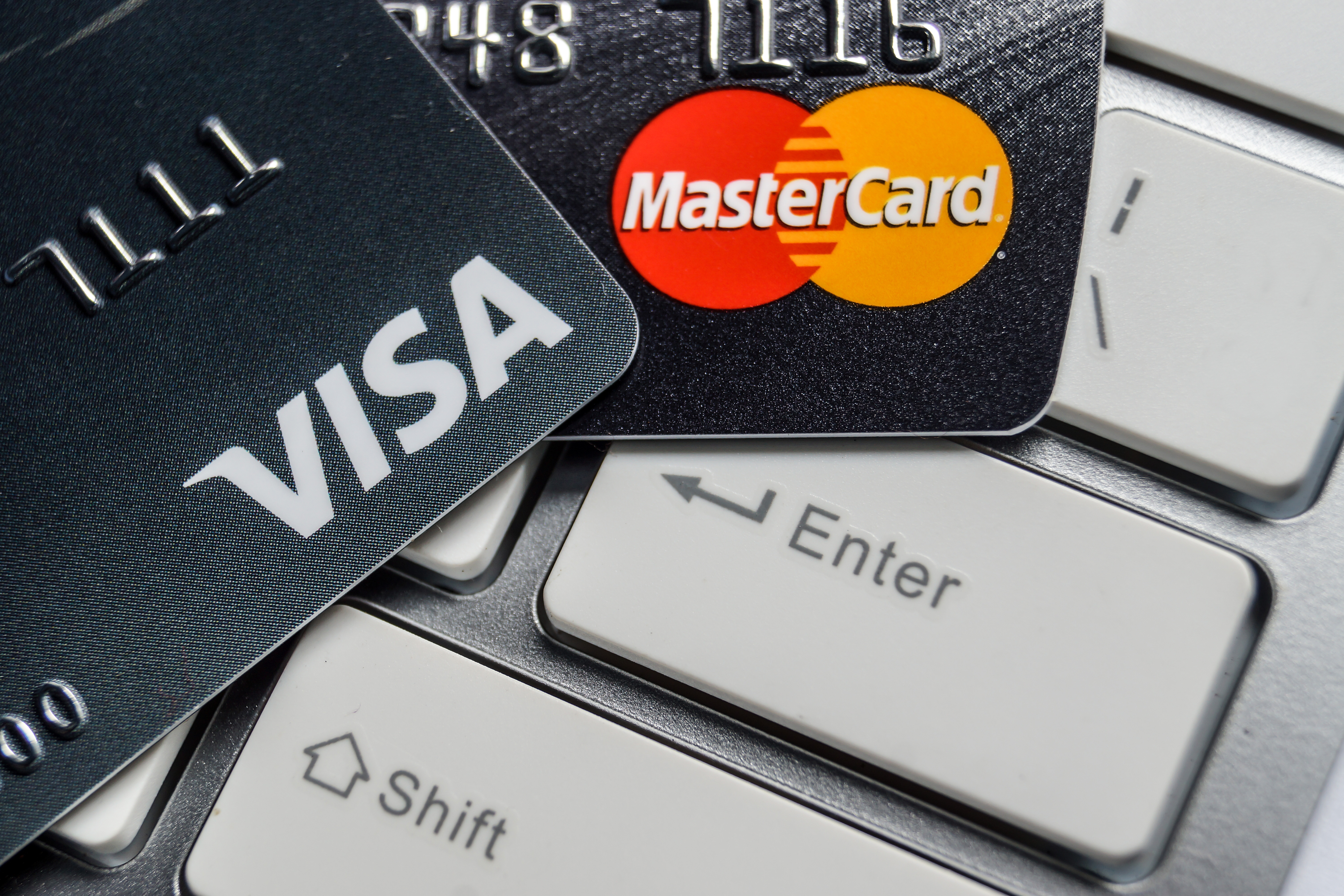Two beneficiaries of a cashless society
Welcome to Magellan Minutes, a new investment insights initiative in which senior members of our investment team dissect the markets and take a deeper look into the sectors and stocks in our global portfolios. This series is designed to provide you with concise, relevant and digestible talking points on global markets, each in around 10 minutes.
In our first episode, we sat down with Magellan's Head of Research, Vihari Ross, to discuss the impact of COVID-19 on the luxury consumer market in China. In this episode, we're joined by deputy CIO and portfolio manager, Dom Giuliano, to discuss our exposure to the payment networks, Mastercard and Visa.

Dom, it’s an interesting time for the payment networks with various dynamics currently at play. What changes are you seeing in consumer behaviour that directly affect the bottom line for companies such as Visa or Mastercard?
There's both good behaviours and bad behaviours if you wish that are coming through. And some of those are shorter term and some of those longer term. So it's going to be a bit difficult to see which ones endure. But if we just think a little bit about some of the bad behaviours or the negatives, which are popping through, clearly with lockdowns around the world, travel restrictions, you are seeing some very significant impacts on spending at both Visa and Mastercard when it comes to fuel, travel entertainment, sporting expenditures, and indeed that even extends into things that you might think are non-discretionary – things like healthcare and education are also being impacted.
On the other hand, we're continuing to see healthy expenditures in food and grocery, as well as pharmacy. And then there's a whole range of other utility-like services that people are continuing to consume.
Perhaps on the positive side, some of the good things which you were saying, which hopefully will endure beyond the lockdown, are that people are just becoming far more sensitive to touching money.
And that means that people are increasingly using digital to pay, either their phones or indeed tap-and-go type, payWave-type services that you can access with your plastic. And so that's probably going to be enduring. And that's happening right around the world in emerging markets, as well as developed markets. And of course, because of the restrictions, people are using ecommerce services a lot more. And the only way that you can pay for ecommerce, of course, is electronically. And both Visa and Mastercard are beneficiaries of that
So what has been the effect on Visa and Mastercard as a result? Has it been similar for both companies?
The effects that are coming through are similar. It's still very early days to see what the impact is going to be on the revenue line. But if you have a look at the volumes, the companies are both disclosing a little bit more than they normally would. And what you're seeing is that total volumes going through their networks are down somewhere between 10% and 20%. Of course, there's a lot of noise there given fiscal disbursements and assistance from governments. But that's quite a significant turnaround from the 10% plus growth that we were seeing in January, February.
Also, you are seeing significant drops in the travel and entertainment categories. So, for example, expenditures related to travel are off 80%, that's eight zero per cent over the course of March and April.
And you could imagine that those sorts of cuts will persist for some time. On the other hand, the bits related to restaurants and cafés, even though they've come off significantly, you should expect to improve, as, of course, the lockdowns related to café and restaurant services abate. In terms of benefits around ecommerce, they are really quite significant as we are seeing expenditure grow by something like 20 - 30% plus over the course of March and April, and that's broadly similar for both Mastercard and Visa.

You recently sold out of American Express. Why did you exit American Express but not Visa or Mastercard?
That's a great question. Look, American Express has got a wonderful business and wonderful franchise. But it is at some of the pointy ends of the risk spectrum when it comes to the pandemic and the financial system. One of the key differentiators between American Express and Visa and Mastercard is that American Express issues credit cards. Credit card risk lies on American Express's balance sheet. Receivables risk lies on American Express’s balance sheets. Whereas for Visa and Mastercard, it's actually not them who bear a credit risk, it's the banks who issue their cards who bear the risk. So as unemployment rates spike, as small businesses and corporates go through a period of a lot of difficulty, we don't know how long that's going to last and how bad it's going to be, it's almost inevitable that loan losses at American Express are going to significantly increase from where they were. They could even approach or even surpass the levels that we saw with the global financial crisis. And that is significant.
The other aspect you need to think about is in terms of funding those lending facilities, the receivables; they do have to access funding in fixed-income markets. It's been stable thus far. The Federal Reserve and other central banks have helped stabilise that system. But you just don't know what the funding circumstances are going to be like in a few months’ time, in a few quarters’ time or indeed a few years’ time.
The last point of difference that I'd make is remember that American Express really targets the affluent customer and also the commercial space. And it’s very successful at both. But just to give you a sense of how the company is at risk at the point here, its travel and entertainment expenditures for overseas travel is actually down 95%. Just contrast that with Visa and Mastercard, down 80%, so clearly wealthy people are not travelling. They cannot travel. And wealthy people tend to spend outsized amounts when they do travel at places which generate a very high margin. And similarly, you're seeing those sorts of impacts come through in the small business and corporate space in which American Express is a very large player with those companies just pulling back on expenditures dramatically.
So even though we really like the franchise, American Express is going to go through more acute difficulties than for Visa and Mastercard that are exposed to more non-discretionary expenditures and more ecommerce and that they will have an easier time over the coming quarters than American Express..
Finally Dom, what can we expect from Visa and Mastercard? Is our longer-term thesis still strong?
Look, at the current time, I think the thesis is intact. They are an essential part of the electronic and physical store digital space. And they've got incredible tailwinds behind them. People are moving from cash and cheques towards electronic. The pandemic, if anything, has accelerated that move. And that's going to be enduring. And so they will be beneficiaries of that. And that's a huge positive for them. And we also discussed the behaviours, people not wanting to touch cash. Those will probably be enduring behaviours.
On the other hand, you do see risks on the horizon, which I do think a lot about. And some of those risks are some of the technology disruption, which is occurring. You are seeing fintechs increasingly encroach on the space at the margin. Visa and Mastercard are doing a fantastic job in combating that competition. But more seriously, you are seeing a number of governments around the world and a number of central banks that are sponsoring what are called real time payment systems, where you can move money from one bank account to another account virtually in seconds.
Those sorts of systems are a threat to the debit franchises that both Visa and Mastercard run.
And we could see that competition increase over time. That isn't an issue for today or tomorrow, even the next year. But when you're thinking into the medium term, those risks are real. But as I said earlier, there's a significant counterweight there in Visa and Mastercard being also material beneficiaries in the move from cash and cheques to electronic payments. And also beneficiaries of ecommerce.
Access more Magellan Minutes
Throughout the Magellan Minutes series, we will cover a variety of sectors around the world, including technology, luxury goods and banking. To be the first to read our latest insights hit the follow button below, or please visit our website for more information.
3 topics

